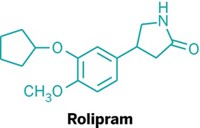Advertisement
Grab your lab coat. Let's get started
Welcome!
Welcome!
Create an account below to get 6 C&EN articles per month, receive newsletters and more - all free.
It seems this is your first time logging in online. Please enter the following information to continue.
As an ACS member you automatically get access to this site. All we need is few more details to create your reading experience.
Not you? Sign in with a different account.
Not you? Sign in with a different account.
ERROR 1
ERROR 1
ERROR 2
ERROR 2
ERROR 2
ERROR 2
ERROR 2
Password and Confirm password must match.
If you have an ACS member number, please enter it here so we can link this account to your membership. (optional)
ERROR 2
ACS values your privacy. By submitting your information, you are gaining access to C&EN and subscribing to our weekly newsletter. We use the information you provide to make your reading experience better, and we will never sell your data to third party members.
Biological Chemistry
Sneaking Antibodies Into The Brain
Dual-purpose antibody crosses blood-brain barrier in monkeys by hitching a ride on brain’s iron transport machinery
by Lauren K. Wolf
November 10, 2014
| A version of this story appeared in
Volume 92, Issue 45
One reason scientists have had a hard time developing treatments for neurodegenerative diseases such as Alzheimer’s is that it’s tough smuggling compounds into the brain. The brain’s security fence—known as the blood-brain barrier—is especially impenetrable to large molecules such as antibodies. To improve antibodies’ ability to pass through, a research team at biotech firm Genentech has targeted the transferrin receptor, a protein that dots the blood-brain barrier at high concentrations and normally helps transport iron into the brain. The researchers designed a bispecific antibody to take advantage of this machinery: One of its arms binds loosely to the transferrin receptor, and the other binds tightly to β-secretase, an enzyme often targeted by potential Alzheimer’s treatments. With the transferrin arm, “you don’t want to bind too tight,” says Ryan J. Watts, team leader and neuroscience director at Genentech. If the interaction is too strong, he adds, the receptor may transport the antibody across the blood-brain barrier but not let go. When the researchers administered the antibody to monkeys, they saw a 10- to 20-fold increase in brain uptake compared with a control antibody (Sci. Transl. Med. 2014, DOI: 10.1126/scitranslmed.3009835). In the past, the team has tested a similar antibody in mice, but this is the first time they applied the therapeutic strategy to primates.




Join the conversation
Contact the reporter
Submit a Letter to the Editor for publication
Engage with us on Twitter